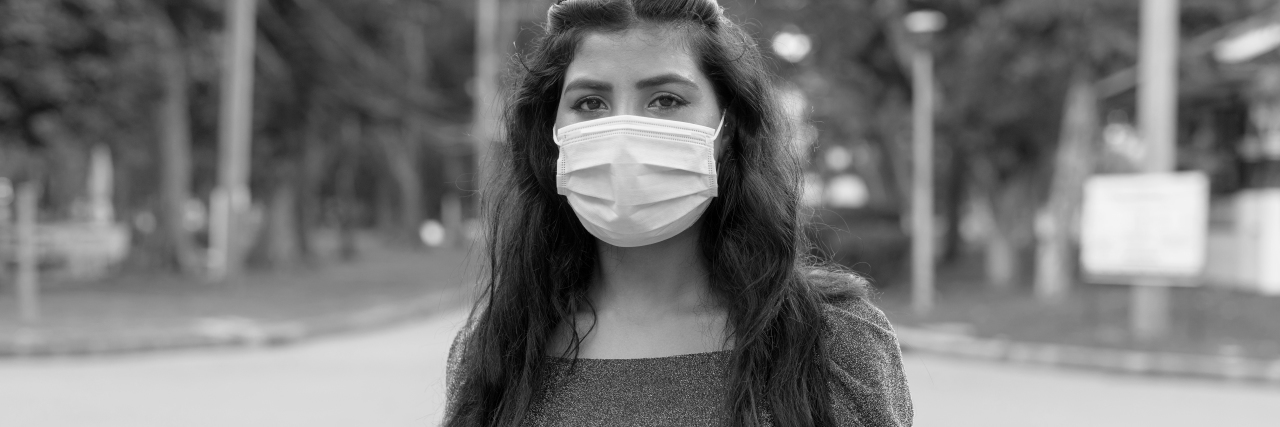March 2021 marks one year since North America started the long and arduous journey to attempt to contain COVID-19. It’s been a year of missed birthdays, holidays, family reunions and milestones. What started as collective fear and anxiety towards the unknown, filled with adrenaline and hope of containment with minimal loss of life, has tumbled into a collective emptiness and depression. Our Dalgona coffees, sourdough bread and new hobbies have been replaced with naps and downtime that never seems to be enough to rejuvenate us. We’ve seen what happens when one of us slips into depression — what happens when our society as a whole feels like it’s slipping?
Every single one of us needs more support than we’ve ever needed, yet each of us has less to offer than we’ve ever had. Many of us are no longer angry and filled with outrage over those that deny this virus or skirt around the rules — we’re just tired. Tired of trying to make people recognize the severity of this pandemic, tired of the endless Zoom meetings, tired of trying to pretend that things are OK when they are the furthest from it. As a result, I’ve noticed myself and the people around me drawing more into themselves, despite needing connection now more than ever. FaceTimes and texts have done little to satiate my hunger for connection, yet the prospect of an in-person meeting stresses me out. As someone who has always had more health anxiety than average, I feel like either way I can’t win.
But there’s something more isolating and lonely now than there was at the beginning of the pandemic. The frenzy and energy of what would happen next is no longer there, and apathy and lethargy have become the flavors of the week. Whether it’s in meetings, or talking to friends, everyone seems to be operating from a more “blah” state. The default response of “good” to being asked “how are you?” sounds less and less convincing every day. Burnout seems to be the norm rather than the exception. Or maybe that’s just me projecting that.
I worry that the hollowness I feel now that used to be filled with happy hours with friends and work socials is too big to be filled by our virtual alternatives. I worry that when we go back to being allowed to do the things we used to before the pandemic, I won’t know how. I worry that after a year of worrying about everything and everything, I’m slowly becoming more and more numb in a way that feels irreversible.
While the prospect of vaccine availability in the coming months seems promising, a vaccine won’t be an antidote for the collective trauma we’ve experienced in the past year. So many of us won’t have the resources to dig us out of this hole, even when we’re allowed to crawl back out into the light again. So many of us will come out of this hole having lost someone to the virus. Many of us will feel like somewhere along the way, we lost ourselves. I know I do.
I’m finding that my capacity to deal with regular everyday stressors diminishes as the days turn into weeks, and weeks turn into months. A text left unanswered, which would have gone relatively unnoticed before the pandemic, now sends me into a complete spiral and I can’t get out of bed. The slight delays in video chats leave me wondering if I said and did the wrong thing. The lack of seeing friends makes me wonder if our friendship is strong enough to endure, or if we will just be a fond memory from another chapter of our lives. The inability to casually chat with coworkers makes work feel more exhausting and less energizing than ever before. Our reliance on social media for all of our connection needs brings more problems than solutions. Humans are social bonding animals — we were never meant to spend our days inside, cut off from the people we love and need the most.
Although this pandemic has taught me many things — how to be more comfortable being alone, how to put more effort into cultivating connection when it’s much easier to not, and how important the people I love are to me — it’s also taken away a lot. We can be grateful for the new perspectives and learnings we’ve gained, while also mourning what we’ve lost.
It would be naive to think that as soon as the cases dissipate and we all get vaccinated, we will suddenly be immune to the mental health impacts of the past year. We’ve been facing two public health crises: the COVID-19 pandemic, and the quieter mental health pandemic. But I have to hope that someday, somehow, once we’ve all been able to collectively heal a bit, we will remember this as a lesson — to lean in when we can, to offer help when we can, and to take care of one another as soon as our tanks are a little fuller. I have to hope that the resiliency of the human spirit is greater than any pandemic and that our will to live and connect will someday return.
Getty Images photo via Ranta Images

